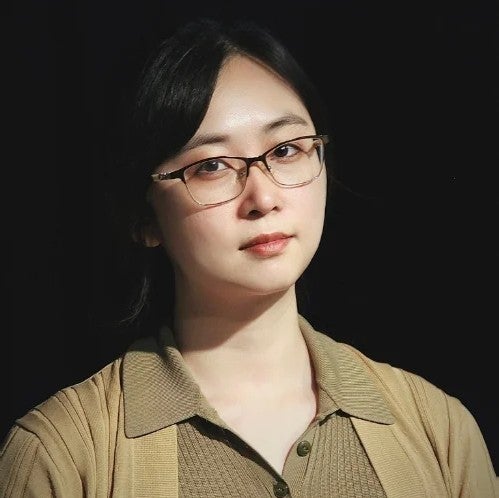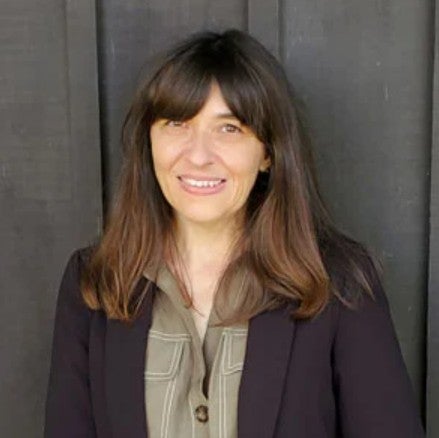Faculty engagement in the assessment process is a critical part of meaningful and manageable assessment. It enhances the overall assessment climate and creates a supportive culture for faculty to work collegially to examine the curricular experience and expected knowledge and skills of their graduates. Each spring, a group of faculty come together to further develop their own assessment expertise by applying to become an Assessment Fellow, taking on the role of an external peer reviewer of undergraduate program leaning outcomes assessment reports. Fellows review reports using an established feedback rubric to provide feedback on the assessment process. Following review, these faculty have the opportunity to bring new or enhanced assessment practice knowledge and skills back to enhance their own programs’ assessment effort. Assessment Fellows are invaluable campus resources for faculty and programs doing assessment of student learning at the program level.
2025 Assessment Fellows
Assistant Teaching Professor
Professional and Public Writing
Assistant Teaching Professor
Biological Sciences
Associate Teaching Professor
Textiles, Fashion Merchandising and Design
Assistant Professor
Criminology and Criminal Justice
Associate Professor
Sociology and Anthropology
Assistant Clinical Professor
Communicative Disorders
Co-Facilitator (2023, 2024, & 2025)
Associate Teaching Professor
Human Development and Family Science
Past Assessment Fellows
For a comprehensive list of faculty who have served as past Assessment Fellows, click here. To learn more about programs who were recognized as exemplary, view the Faculty Senate reports available (here). For information about becoming an Assessment Fellow, please contact assess@uri.edu
Peer Review and Faculty/Program Recognition
Each year, the peer review process surfaces reports that are exemplary, recognizing the faculty lead report writers. These faculty typically coordinate the assessment effort for their program, managing logistics, summarizing data to write to document the programs’ efforts to understand student learning. The following programs received top recognition for excellence in assessment reporting by demonstrating use of strong assessment processes and documentation. Click the faculty member’s name below to read a summary brief of their program assessment projects. Reach out to them if you’d like to connect to learn more!
| Program | Department | College | Faculty Lead Writer(s); with link to assessment brief |
| Aquaculture and Fisheries Science, BS | Fisheries, Animal, and Veterinary Sciences | College of the Environment and Life Sciences | Austin Humphries |
| Biotechnology, BS | Cell and Molecular Biology | College of Environment and Life Sciences | Brian Plouffe* |
| General Education: Reports 2021, 2022 | General Education | General Education | Chairs, Faculty Senate, General Education Committee and Advisory Subcommittee: Damon Raric, Jay Fogelman, Joelle Rollo-Koster, OIGE: Rachel Dicioccio, Noah Hallisey, SLOAA: Elaine Finan |
| Human Development and Family Science, BS | Human Development and Family Science | College of Health Sciences | Skye Leedahl, Julianna Golas, Jessica Cless |
| Environmental Science and Management, BS (Interim) | Natural Resources Science | College of the Environment and Life Sciences | Alissa Cox |
Assessment Project Summaries For Exemplar Undergraduate Programs
College of Environment and Life Sciences
Aquaculture and Fisheries Science
Lead Writer: Austin Humphries
| This report checked on the developmental acquisition of learning of foundational scientific knowledge at critical points within the curriculum, from 100 – 400 level courses. One rubric was designed for use across all types of student work (projects and papers), at all course levels with expectations adjusted for different course levels. This project was well planned and engaged several faculty. While overall, students were found to be meeting the programs expectations for building foundational and applied scientific knowledge across multiple domains, the assessment effort yielded recommendations that included changes to the assessment process (e.g., not using group work), as well as pedagogy considerations (e.g., assignment design, scaffolding, format, modality differences) to further improve learning. |
Biotechnology, BS
Lead Writer: Brian Plouffe
| This exemplary assessment report demonstrated an intentional, data-driven approach to the successful evaluation of a learning outcome that is often difficult to measure: students’ ability to work effectively in teams. Through the use of multiple artifacts such as peer evaluations, project rubrics, and reflective assignments across several courses, the program tracked meaningful growth in the development of collaborative skills and offered a thoughtful analysis of both strengths and challenges. It also acknowledged the role of co-curricular experiences, such as clubs, athletics, and Greek life, in shaping students’ “teamwork” abilities, offering a holistic view of their development. The thoughtful combination of quantitative and qualitative evidence, along with a clear plan for reassessment, reflects a mature and reflective assessment culture that serves as a strong model for effective program-level evaluation. |
Environmental Science and Management, BS (Interim)
Lead Writers: Alissa Cox
| The highlight of this assessment plan was the comprehensive narrative reflection which described a forward thinking approach to designing a phased effort for program assessment given existing curricular and faculty considerations. One of the key next steps noted is to “convene as a department, revise our learning outcomes and consider curriculum modifications to be able to meet student needs and assess program outcomes.” Their plan includes a focus on measuring an outcome in the next cycle that will sustain changes within the major. The program acknowledged that flexible curricular pathways can create challenges to assessment, as well as to students who have a less clear path for building knowledge that is aligned to program learning outcomes through scaffolded course experiences. Piloting a proactive approach to assessment, the program included draft rubric language, identified course selection for student work and the learning questions being investigated and includes a convenient process using a shared Google folder to streamline efforts. Additionally, the program noted plans for enhanced faculty engagement with assessment results being brought into departmental discussions around curriculum revision which may prompt connections with alumni to learn about the critical curricular elements students need to be successful in environmental science related fields. Practicality and reasonableness are themes throughout the planning phase. |
College of Health Sciences
Human Development and Family Science, BS
Lead Writer: Julianna Golas, Skye Leedhal, Jessica Cless
| The program demonstrated considerable planning and forethought in outlining new procedures for collecting student work and learning data which included training faculty on a rubric to ensure a shared understanding of student achievement, and alignment of assignments and instructions. The intent of the design of the student work artifacts are considered sustainable as “signature assignments” for assessment. The depth of faculty engagement in the process is impressive and shows a strong departmental commitment to understanding student learning through program assessment. |
General Education
General Education: 2021, 2022, 2023
Lead Writer: Chairs, Faculty Senate General Education Committee and Advisory Subcommittee: Damon Raric, Jay Fogelman, Joelle Rollo-Koster; OIGE: Rachel Dicioccio, Noah Hallisey; SLOAA: Elaine Finan
| This past round, reports covering three assessment cycles were submitted on behalf of the General Education Program documenting assessment efforts for six of eight outcomes. The individual reports were thorough and comprehensive, included extensive details on the assessment process and learning results, and incorporated input and feedback from multiple stakeholder groups throughout. To synthesize the findings, the FSGEC prepared a streamlined summary identifying cross-cutting issues evident across all three cycles, highlighting key “next steps” to address the most pressing challenges which include increasing faculty awareness, engagement, and participation, as well as refining assessment practices. Recommendations focused on the need to: cultivate faculty engagement and support to improve participation and the submission of student work; prioritize clear alignment between assignments and scoring rubrics; clarify expectations for course participation in the assessment process (e.g., assignment design); foster a commitment to equity in the evaluation process, supported by the use of disaggregated data when needed. Despite low faculty participation rates, the student work samples submitted were deemed generalizable at a broad level. The committee’s findings point to encouraging signs of student competency in most areas: students demonstrated competency in four outcomes (B1, B3, C1, C3), and approaching competency on the remaining two outcomes assessed thus far (B2, B4). Additionally, the FSGEC recommended continuing a standing advisory body to serve as a vital bridge among faculty, administration, and the committee itself, helping to ensure ongoing reflection, responsiveness, and renewal of the General Education Program. (Note: C2 and D1 were assessed in May 2025; summary results expected in Fall 2025). |



